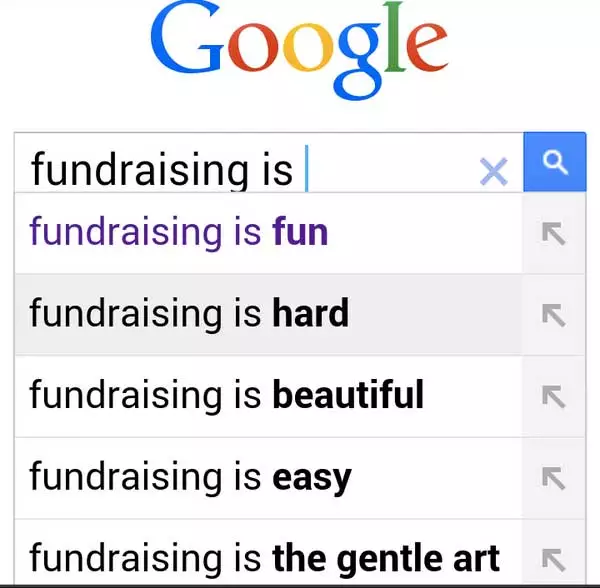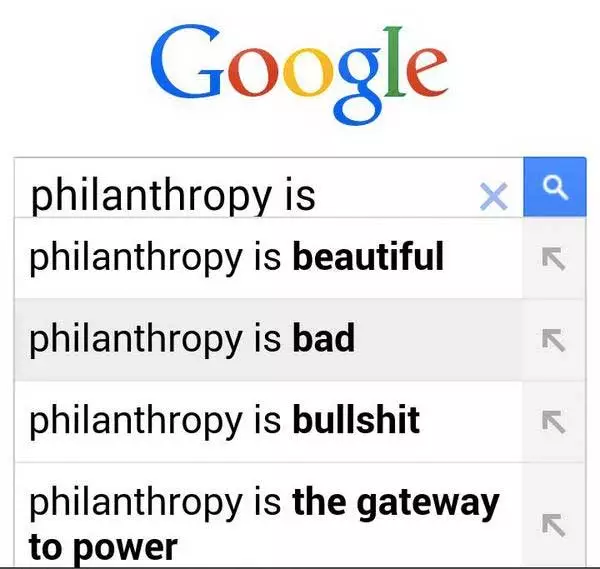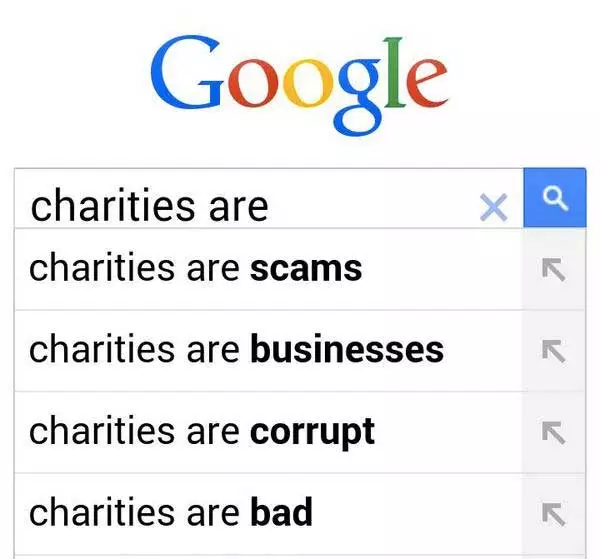Fundraising, philanthropy and charities: what Google autocomplete suggests
We might have a good idea what fundraising is and consists of, but others, especially those who use Google, seem to have other ideas. And quite a range of ideas at that.
That’s what John Thompson of Changing Business, and a long-serving blogger on UK Fundraising, discovered today. He typed “Fundraising is…” into the Google search box, and was presented with Google’s automatic list of suggestions for completing that phrase. This is what he saw:
1. Fundraising

“Fundraising is fun”. Well, some of the time it is. Fortunately, that seems almost as likely as “fundraising is hard”. My favourite is “Fundraising is the gentle art”. Are there really people using that search phrase on Google?
Apparently so. Google’s support pages explain how its autocomplete function – which can’t be switched off by the way – works.
“The search queries that you see as part of Autocomplete are a reflection of the search activity of users and the content of web pages… All of the predictions that are shown in the drop-down list have been typed before by Google users or appear on the web”.
2. Philanthropy

“Philanthropy is beautiful” is not a bad start, but in the minds of Google users it goes rapidly downhill from there. Let’s hope those search results lead us to discussions that debate and challenge those assumptions.
3. Charities

Charities however come off worse. Charities are assumed to be scams, businesses, corrupt or bad, according to many Google searchers. Fine, ‘businesses’ is accurate, although a qualification of that can be helpful.
But if that is what many of the general public believe, and they are searching Google for evidence to back that up, then we do, as John suggests, have a lot of work to do to challenge those assumptions.
Views from abroad?
John’s search will have yielded results from Google UK, and might reflect his own search history. The chances are that your autocomplete results for the same search terms might be different.
What do you find? Anything different, or more encouraging? Post your screenshots in the comments below or email them to us for possible publication.



